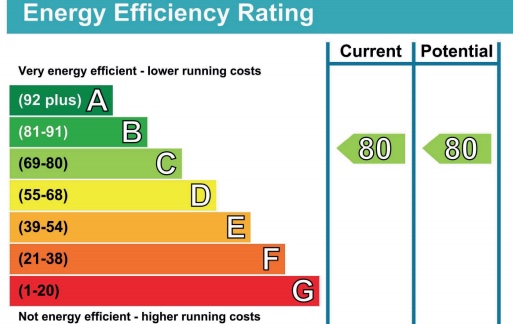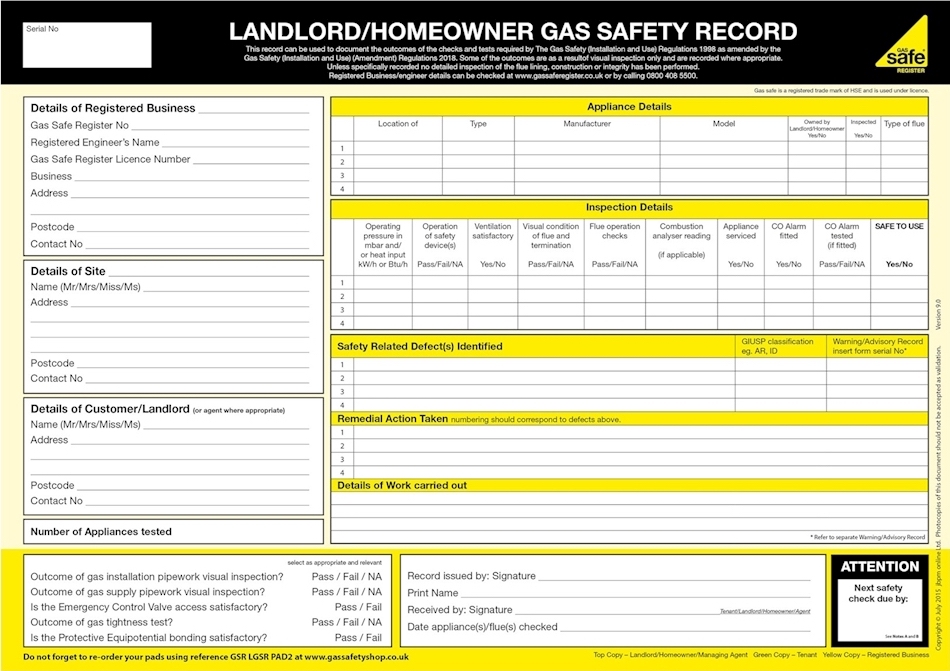Our checklist will help any landlords renting out a property for the first time in Hammersmith, Chiswick, or Shepherd’s Bush, offering tailored advice for these prime locations.
Landlords renting out a property for the first time may feel overwhelmed by the requirements, rules, and guidelines. While it may seem like a lot to digest, many of the obligations are in place to not only protect tenants but also the landlord.
To simplify things, our Lettings team has put together an overview to help new landlords get started, focusing on what’s important in Hammersmith, Chiswick, and Shepherd’s Bush, where tenant expectations are often high.
How to rent your house | Advice for first-time landlords
Hammersmith, Chiswick, and Shepherd’s Bush are some of the most desirable residential areas in London, where tenants often expect homes of a high standard, complete with quality fixtures and fittings.
While this doesn’t necessarily mean a full renovation is needed, small improvements, such as updating kitchen appliances or repainting walls, can increase rentability and appeal to discerning tenants.
As rental values tend to be higher in these areas, investing in a few updates could yield strong returns.
How to prepare your property for new tenants
There are several essential steps landlords must take to meet government standards and ensure their property is ready to rent.
Completing these steps not only ensures compliance but also helps create a positive relationship with tenants, leading to longer tenancies in many cases.
Below is our checklist covering the key requirements for new landlords.

Checklist for letting a property
1. Prepare your property to let
Before marketing your property, ensure all works are complete, and the space is clean and presentable.
Whether to let it furnished or unfurnished depends on the type of property and its location.
For example, 1 and 2 bed properties are more likely to attract professionals who require a furnished property, whilst larger homes tend to let to families who have already accumulated their own furniture.
The season or overall pace of the lettings market can also be factors that affect how you prepare your property to let – we’re always happy to have a timely, no-obligation discussion and share our knowledge with new landlords, so do get in touch.
2. Make sure your rental property is safe
The top concern for every landlord should be to ensure their rental property is safe and free of any health hazards.
Each local council uses the Housing Health and Safety Rating System (HHSRS) to make sure properties are safe for the people who live there.
3. Provide a valid Energy Performance Certificate (EPC)
It’s legally required for all rental properties to have a valid EPC. From 1 April 2020, properties with an EPC rating of F or G cannot be let.
Given the age of many properties in Chiswick, it may be worth considering upgrades to improve energy efficiency and attract environmentally conscious tenants.
Landlords are required to provide tenants with a copy of the EPC prior to moving in.

4. Provide a valid Gas Safety Certificate
Every rented property with a gas supply must undergo an annual gas safety check by a Gas Safe registered engineer.
A copy of the certificate must be provided to tenants before they move in.
In areas like Hammersmith, where many older properties are rented, annual checks are crucial to ensure the safety of appliances.
Important to note that these checks need to be renewed every year.

5. Provide a record of electrical inspections
Since 2021, landlords in the UK are legally required to carry out electrical safety checks at least every five years.
In higher-density areas like Shepherd’s Bush, where flats and apartments are common, it’s essential to ensure compliance with this regulation.
A copy of the report should be provided to both tenants and local authorities upon request.
6. Install Smoke and Carbon Monoxide Detectors
Landlords must install carbon monoxide detectors in properties with fixed appliances, such as gas boilers, and smoke detectors on every floor.
This is especially important in older properties found in Chiswick or Hammersmith, where retrofitting detectors may be necessary.

7. Fire Safe Furniture and Fittings
Any furniture or fittings that are in a landlord’s property while renting the property out, must meet the fire safety requirements set out in the Furniture and Furnishings (Fire) (Safety) Regulations 1988.
If tenants bring their own furniture into the property, it is not a landlord’s legal requirement to check that they meet these standards, however, it is advised that you make them aware of the risks.
8. Provide the How to Rent guidance
A landlord or their letting agent should ensure a tenant has the most up to date version of the How to Rent checklist which has been put together by the government.
This document provides an official checklist to help tenants at every stage of the letting process.
9. Reference prospective tenants
A tenant reference check will usually include a credit check and the below point regarding a potential tenants’ right to rent in the UK.
Referencing is not a legal requirement but is good practice, highly recommended and may be a requirement for some Landlord insurance products.
Good letting agents will usually have a stringent referencing process in place and will check a tenant’s affordability, and collect references from previous landlords and an employer.
10. Carry out a Right to Rent check
For all rental properties in England, a landlord must check that a tenant is legally permitted to live in the UK and rent a property in England.
Before the start of a tenancy, a landlord or their agent must check that all tenants aged over 18 have the Right to Rent in England.
11. Arrange the tenancy agreement
Most tenancy agreements are assured shorthold tenancies (AST), and this contract defines the rights and obligations of both parties.
For landlords in Chiswick and Shepherd’s Bush, it’s crucial to ensure the contract aligns with the specific rental market conditions of these areas.
12. Protect the tenant’s deposit
The tenant’s deposit for the rental property must be placed into a government-approved scheme within 30 days of receipt of the deposit.
As with many steps to letting a property, a letting or managing agent can arrange this on behalf of a landlord. Proof of the deposit being placed into a scheme should be given to the tenant.
13. Ensure landlord’s insurance is in place
Having the correct landlord insurance in place is of paramount importance. Whilst it is not a legal requirement to have landlord-specific insurance to cover your rental property, it might be a condition of a buy-to-let mortgage. Having the correct insurance in place will ensure you are protected.
There are usually a variety of options that a landlord can choose to cover within their insurance from buildings and contents to legal expenses and even a rent guarantee should the tenants miss payments in unforeseen circumstances.
14. Arrange for an inventory
Whilst it’s perfectly legal for a landlord to carry out their own inventory of the property, the items included and the condition throughout, it can be a worthwhile investment to pay an independent inventory clerk to prepare an inventory.
Not only does this save a landlord time but a third-party prepared inventory can be stronger should a dispute arise when the tenants depart.
An inventory check are documents that report on the state of the property, and its contents at the time of the assessment. These assessments should be carried out twice, once before the tenants move in, and again at the end of the tenancy.
Important to note, that even if your property is unfurnished you should still complete an inventory check as a record of the properties overall decorative condition.

What documents must a landlord provide by law in the UK?
By law, in the UK, landlords must absolutely provide the following documents to their tenants:
- Valid Energy Performance Certificate (EPC)
- Gas Safety certificate
- A valid Electrical Installation Condition Report
- Copy of the How to Rent guidance
- Deposit paperwork (within 30 days of receipt)
- Record of any electrical inspections.
Landlord’s financial responsibilities
It’s important not to omit the financial responsibilities. A landlord will need to determine any amount of income tax they are liable to pay in connection with the rental income.
A landlord who is running their rental property as a business may need to pay Class 2 National Insurance.
It’s wise to speak to an experienced tax advisor to ensure your rental property is set up and run in the best way to suit your personal circumstances.
Should you consider a property management service?
As a first-time landlord, you may be weighing how involved you want to be in managing your rental property.
Some landlords prefer a hands-on approach, while others find peace of mind in hiring a property management service to handle day-to-day tasks, especially if they have limited time or live far from the property.
What does a property management service offer?
A property management service can take care of every aspect of renting your property, from marketing and tenant vetting to rent collection and maintenance.
They can also assist with legal compliance, ensuring the property meets all local regulations, which can be particularly helpful in high-demand areas like Hammersmith and Chiswick where tenant expectations and property values are often higher.
Property management services are often used by landlords with portfolios or those who are new to letting and want professional support.
Is it worth the cost?
The cost of property management services typically ranges from 10-15% of the monthly rent, depending on the level of service required.
While this is an additional expense, it can be worth it for landlords who prefer not to deal with the complexities of property management themselves.
In prime rental areas like Hammersmith, where properties often yield higher rents, the value of professional management can offset the fees by ensuring the property is well-maintained and occupied by reliable tenants.
Additionally, using a property management service may help prevent costly legal issues by ensuring all regulatory requirements are met.
Ultimately, for landlords who would rather focus on other priorities, the time saved and the professional handling of tenant relations and property care can make property management services a worthwhile investment.

Low-cost improvements to maximise rental appeal
First-time landlords often wonder how to make their property stand out without spending a fortune.
Fortunately, there are several budget-friendly improvements that can enhance the appeal of your property and increase its rental value.
Modernise fixtures and fittings
Small updates can make a big difference. Replacing outdated fixtures such as door handles, taps, and light fittings can give a property a more modern feel without requiring a major renovation.
Tenants in high-demand areas like Chiswick and Shepherd’s Bush often appreciate properties that feel up-to-date and well-maintained, and these small changes can improve the overall look of your home.
Freshen up with a coat of paint
A fresh coat of paint is one of the most cost-effective ways to give your property a new lease of life. Neutral tones tend to have broad appeal, making rooms feel bright and spacious.
In competitive rental markets like Hammersmith, presenting a clean and freshly painted property can make all the difference in attracting high-quality tenants.
If your property hasn’t been updated in a few years, a simple refresh of the walls or skirting boards can make a lasting impression.
Focus on kerb appeal
First impressions matter, and the exterior of your property is the first thing potential tenants will see. A well-maintained outdoor space, whether it’s a small front garden, a terrace, or even just the entryway, can significantly boost your property’s appeal.
Tidying up the garden, adding a few potted plants, or giving the front door a fresh coat of paint can create a welcoming atmosphere.
Landlords in Shepherd’s Bush often find that small investments in kerb appeal lead to faster lettings and more interest from potential tenants.

Property to let in Hammersmith, Chiswick or Shepherd’s Bush
If you’re thinking about letting your property in Hammersmith, Chiswick, or Shepherd’s Bush, and would like further advice or guidance, our Lettings team is here to assist.
Get in touch with us for a no-obligation consultation to help you get started on the right foot – please do get in touch.
The post Our top tips for landlords renting out a property for the first time appeared first on Horton and Garton.